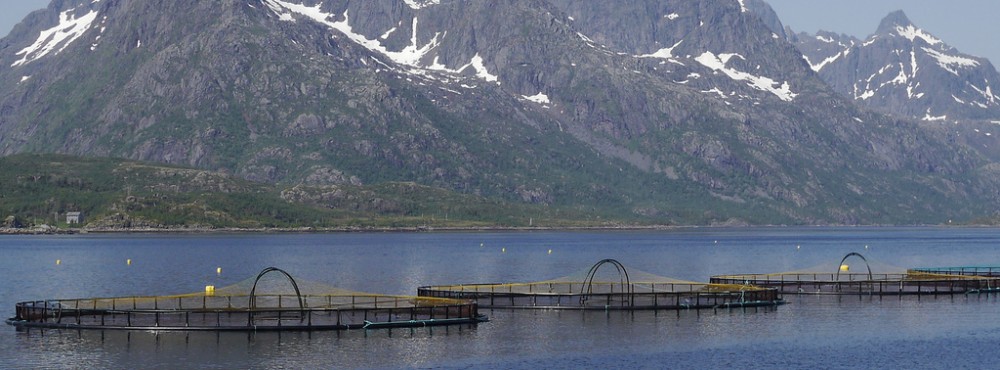UK SALMON FARMS
Loopholes Favouring Industry
Controversial legislation over the use of chemical agents such as Dichlorvos (marketed as Nuvan) is a problem in the UK. Even though used to treat sea lice infected salmon, dichlorvos does harm to farmed salmon by creating disease resistant strains of sea lice (Ashley, 2007) and increasing chances of cataracts and blindness (Fraser et al, 1990). And it is classified as “dangerous to fish” on dichlorvos containers (Ross, 1989). Despite being classified as a pesticide and regulated in terrestrial usage by the Food and Environment Protection Act, dichlorvos is considered a veterinary medicine in the Medicines Acts of 1968. This conflicting legislature allows for the administration of dichlorvos in UK salmon farms despite its negative effects on farmed salmon. As we can see loopholes allow for the industry to use treatments that may have negative side-effects on salmon. Such loopholes need to be cleaned up in order to promote the aquaculture industry to adopt newer, salmon-friendlier practices.
Environmental Law Benefiting Salmon Welfare?
In the White Paper This Common Inheritance it states: “Where there are significant risks of damage to the environment, the government will be prepared to take precautionary action to limit the use of potentially dangerous materials or the spread of potentially dangerous pollutants, even where scientific knowledge is not conclusive, if the balance of likely costs and benefits justifies it” (Barton, 1997). Thus, UK law permits government intervention when the environment is threatened by aquaculture. Even though the UK regulatory framework is structured to consider the environment, salmon welfare may only benefit from such environmentally-oriented laws. Ultimately harsh farm conditions that reduce welfare also lead to environmental degradation; the degradation of the surrounding environment is typically a downstream effect of poor farming. Initially salmon welfare would be impacted to a greater extent than the environment since effluents would be localized. However, these effluents will eventually spread throughout the environment, instigating pressure on farms to clean up their act. The integrity of the environment, wild salmon, and farmed salmon are interconnected and these parties mutually benefit from governmental involvement, despite the initial intent of the law not being directly aimed at improving salmon welfare.
